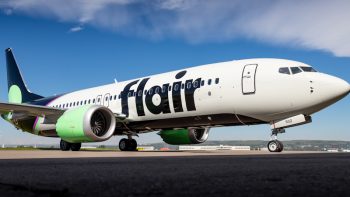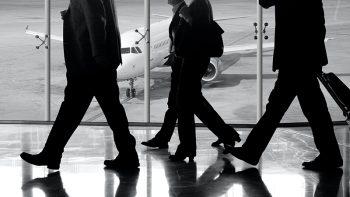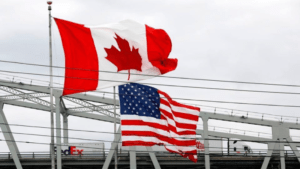
Airlines and pax are still reeling from Friday’s software snafu, which has grounded more than 10,000 flights around the world and is still causing a large number of cancellations. But things are pretty much back to normal for Porter Airlines.
A widespread technology outage on 19JUL caused by an incident at a cybersecurity company called CrowdStrike resulted in blank computer screens for some Microsoft Windows users, and affected millions of computers around the world. Airlines, hospitals, banks, media companies and many other businesses were virtually shut down by the outage on a busy Friday for summer travel.
Business Traveller reports that the world’s 20 largest airlines alone cancelled 9,650 flights on 19JUL, 20JUL and 21JUL. Delta was by far the worst affected, cancelling 4,675 flights in three days, followed by fellow US airlines United (1,706 cancellations), AA (860), and Spirit (550). EasyJet had 469 cancellations, while Lufthansa had 281 and Ryanair 271.
American was the fastest U.S. airline to recover and saw only 48 cancelled flights on 20JUL, according to Flight Aware. But Delta had 1,201 cancellations that day and United 447.
Delta was even worse the next day, suffering 1,380 cancellations, compared to 266 for United and 92 for American.
Delta’s woes continued as the new work week dawned. As of 9 a.m. ET on 22JUL, Flight Aware was reporting 661 cancelled Delta flights, or 17% of their total routes. American was showing 38 cancellations, while United had just 17.
Porter Airlines early on 19JUL shut down flights until noon, then extended that to 3 p.m.
“Every day is better for us,” Porter spokesman Brad Cicero said in an interview with Open Jaw on 22JUL. “Today is probably the last day we’ll have any residual effect” from the outage.
There were some traffic delays at YTZ on 21JUL, he said, but Porter had no significant issues.
Cicero said Porter, like hundreds of other companies, will spend a good deal of time this week thinking about what went wrong, and how they might avoid such a damaging incident in the future.
“You do all you can to look at your preparations and assess what actually happened. Those conversations are happening and will be shared this week.”
Cicero said Porter will look at not only technical issues but also how it handled the consumer experience for pax who had flights cancelled or delayed.
"Any time new software is deployed, there is the potential for bugs or errors to affect the operating system that is currently in use," Tim Ehrenkaufer, assistant professor of aeronautical science at Embry-Riddle Aeronautical University, said in an email to USA TODAY. "Ultimately, events like these serve as valuable reminders for organizations to always back up their data, in the case that a rollback is required.
“With technology, there’s always the likelihood of a glitch and, usually, these types of mishaps are resolved quickly and without any major or long-lasting effects,” he said.
Frustrated pax slept in jetways and spread themselves out on floors and chairs at airports around the world as message boards flashed “flight cancelled” warnings.
“Canceling a flight is always a last resort, and something we don't take lightly,” Delta CEO Ed Bastian said in a weekend statement. “I want to apologize to every one of you who have been impacted by these events. Delta is in the business of connecting the world, and we understand how difficult it can be when your travels are disrupted.
“Please know that Delta’s entire team of the best professionals in the business have been working around the clock to safely get you where you need to go, and restore the reliable, on-time experience you've come to expect when you fly with us.”
As if the outages weren’t enough, Associated Press reports that government cybersecurity agencies across the globe and even CrowdStrike chief executive George Kurtz are warning businesses and individuals around the world about new phishing schemes that involve malicious actors posing as CrowdStrike employees or other tech specialists offering to assist those recovering from the outage.






